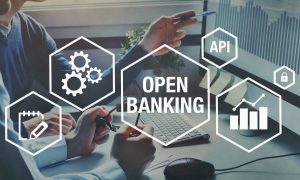Open banking is transforming the financial services industry by putting the power of financial data back into the hands of users. Since the popularization of open banking, the way people have managed their money has changed for the better. Most importantly, open banking facilitates the democratization of the financial services market, allowing more people to participate and removing former hurdles to functions such as acquiring loans.
Open Banking is a system in which a user’s personal and business data can be shared between different applications and banks with their permission. It works very similarly to the privacy permissions one’s phone, where users can allow different apps to access their credit card data, camera, or photo album at will. Users have a say over when and where their data is shared, and to what extent. This streamlines the onboarding process with many financial services including the approvals process of acquiring a loan, allowing users to get more out of their banking.
Today, more and more people divide their financial services between multiple applications that specialize in different facets of banking and transacting. Even with trading, users are often using multiple platforms to execute different trades or participate in different markets. Imagine a dashboard being able to streamline all linked activity in one place. This would be possible with open banking technology. All it would take is consent for all the data to be presented as a snapshot via a platform that leveraged open banking technology.
Another application of open banking is in democratizing the loans process, making financing available to more people through an updated system of credit checking. In the current lending market, unless a user has up-to-date data from having already borrowed money, their credit score is virtually non-existent. This is a major deterrent of entry into the financial market for many demographics that have not had the opportunity to build financial data akin to a credit score including recent immigrants, new businesses, and retirees hoping to leverage their assets to help their children.
With the possibilities of open banking comes a push for a better financial marketplace with more entrants made possible through the streamlining of financial data. What will be key is the management of consent for data use, as well as ensuring the security and reliability for both the consumer and the financial services provider.
























